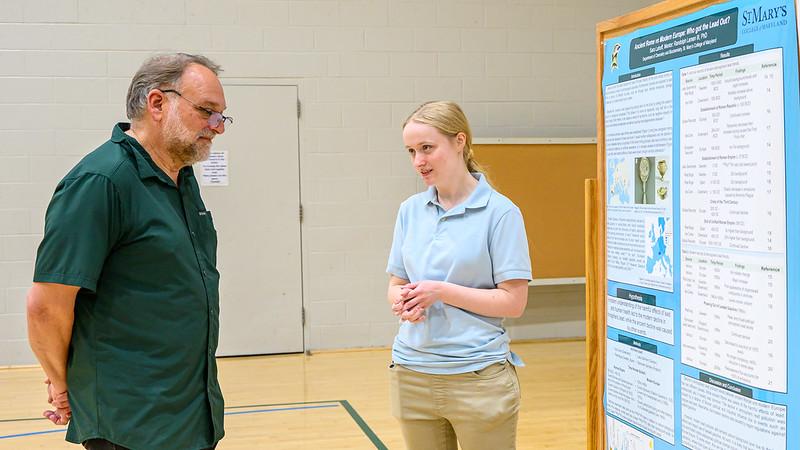
The Department of Chemistry and Biochemistry’s work transforming its assessment system was just published as a paper titled “A Programmatic Assessment System that Features Signature Assignments and a Longitudinal Rubric” in the Journal of Research and Practice in Assessment, with Professor Geoffrey Bowers, Professor Pamela Mertz, and Associate Dean & Professor Kelly Neiles sharing co-first authorship on the paper, and five additional department members named as authors on the paper. The paper is the culmination of four-plus years of work as part of the National Science Foundation-sponsored Council on Undergraduate Research Transformations Project (NSF 16-25354). The Department of Chemistry and Biochemistry and the Department of Psychology were selected from 24 total departments nationwide to participate in a study focused on developing a research-centric curriculum. As part of that process, the Department of Chemistry and Biochemistry intentionally scaffolded its curriculum around newly defined program learning objectives and simultaneously re-envisioned its entire assessment system using a systems thinking approach. As noted in the abstract, “Developing program-level assessment systems creates an opportunity for faculty to think deeply about their student learning objectives while creating structures that provide meaningful and actionable feedback.”
The paper describes how the department used a backward design process to enable the faculty to discuss their curriculum and identify in-class signature assignments that provide assessment data. At the same time, the systems thinking approach helped faculty integrate their course, program, and institutional assessments. The resulting programmatic assessment system facilitates longitudinal tracking of individual students and cohorts using a rubric that maps signature assignments within courses onto the program learning objectives. Each semester, stakeholders analyze the student learning evidence and use those data to drive curricular reform at the course and program levels.
There is an accompanying paper on the use of systems thinking in assessment design, “A Systems Thinking Approach Toward Meaningful Program Assessment” available open access through the ChemRXIV server. Lessons and work from the department are also featured in the book Transforming Academic Culture and Curriculum, Routledge Press, Malachowski, Ambos, Karukstis, Kinzie, and Osborn (eds).



